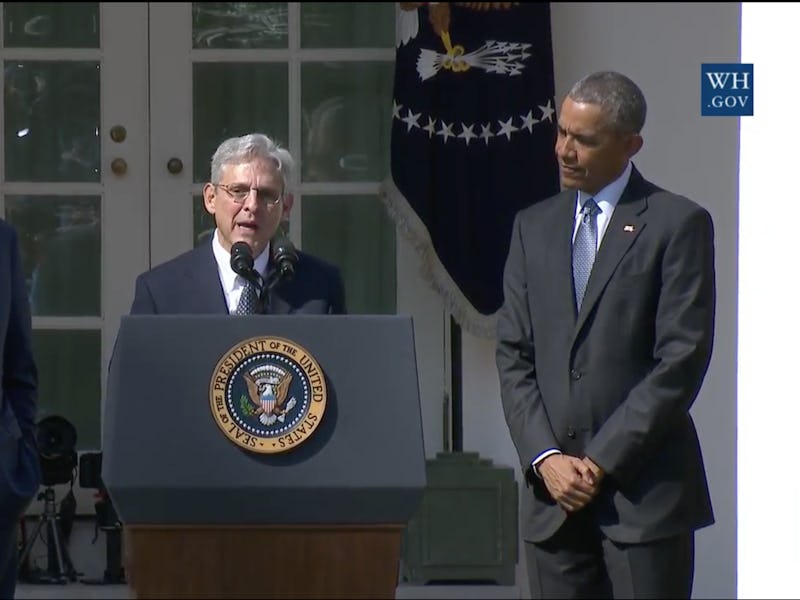When Merrick Garland Faced Off With Scalia Over SeaWorld and Won
When Garland presided over a dramatic SeaWorld case.

President Barack Obama on Wednesday during an impassioned speech announced the nomination of Merrick Garland, chief judge of the United States Court of Appeals for the District of Columbia Circuit, to fill the shoes of the late Justice Antonin Scalia on the Supreme Court.
“Chief Judge Garland is more than just a brilliant legal mind,” Obama said in his speech. “He’s someone who has a keen understanding that justice is about more than abstract legal theories, more than some footnote in a dusty case book.”
That line may have been a jab at Scalia’s strict Constitutionalism, but we can see Garland’s distinct differences from the departed judge not just in the president’s words, but also in a previous case in which the new nominee stared down the Scalia family and won.
The case involved a SeaWorld trainer Dawn Brancheau, who was fatally drowned during a killer whale attack. While Garland’s opinion in the 2013 hearing might not give us much insight into his potential political leanings as a Supreme Court judge, it’s a good illustration of his differences from Scalia.
The attack took place on February 24, 2010, and many avid Netflix watchers might remember the incident from the opening and closing segment of Blackfish, the documentary examining the abuse of killer whales and their trainers at SeaWorld.
SeaWorld argued its safety protocols put in place were sufficient to protect the trainers and that additional regulations would be a burden for the company. It’s an argument five previous courts didn’t find all too persuading before ending up in front of Garland.
Who better to represent the plight of big corporations that don’t protect their workers than the son of the now late Antonin Scalia, Eugene Scalia?
He argued that, much like high intensity athletes such as NASCAR drivers and football players, Orca whale trainers feed off the adrenaline boost and are fully aware of the risks associated with their profession.
The three-member court’s lone dissenter, Judge Brett Kavanaugh, agreed with Eugene: “To be fearless, courageous, tough — to perform a sport or activity at the highest levels of human capacity, even in the face of known physical risk — is among the greatest forms of personal achievement.”
But Garland and the opinion writer Judge Judith Rogers, were unpersuaded by this flashy, Antonin-esque argument and ruled to keep the government’s mandate on increased safety provisions for Orca trainers.
In the president’s announcement speech, he highlighted Garland’s service as a public defender when he could have retained his status as a partner of a law firm, as well as Garland’s quickness to help support the government during the hearings of the Oklahoma City bombing. Those items and his record on criminal justice are likely better indicators of how he would function as a Supreme Court justice, but surely the irony of this case will be comforting to whale activists.